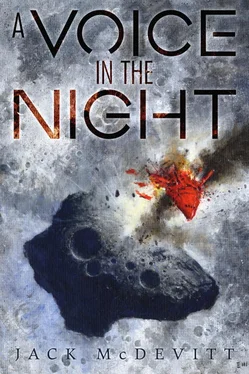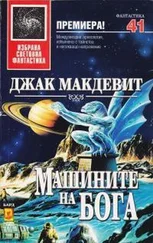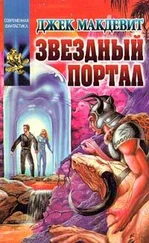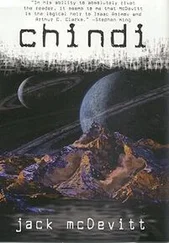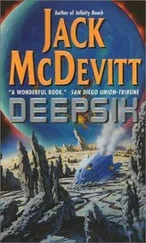“Oh,” he said. “Jason Hutchins. I should have realized.”
“Yes. He’s pretty well known.”
“He’s the guy who heard the artificial signal.”
“It’s a lot of years ago now.”
“And that’s what got you interested in piloting interstellars?”
“It helped.”
“But nothing ever came of it.”
“That wasn’t the big thing.”
“What was?”
“When I was about six or seven, he took me to the Moon. That was before the signal came in.”
“You must have enjoyed that.”
“I loved it. Never forgot it. I remember standing out there with him on the rim of a crater. ‘How old’s the crater, Daddy?’ ‘Millions of years, kid,’ he said. I don’t think I knew what a million was, but he described a place that never changed. I still remember his saying that time stood still out there. And I could feel it. A place where clocks didn’t run. It was incredible, Jake. When I got home, I kept thinking about it. You know, the other kids, they played ball and sat on swings and never looked above the rooftops. Later, they were all talking about becoming lawyers or getting degrees in business management. Me, I never wanted anything other than what I’m doing right now.”
Jake smiled. “I think you’re going to find it’s not as romantic as it sounds, Hutch.”
“How do you mean?”
He shrugged. “You ride for weeks or maybe months inside a sealed container. You take archeologists to Quraqua, or carry supplies out to Palomus and hope you don’t get radiated in the process. Then you go home and do it again. Don’t misunderstand me. I wouldn’t change a thing. But it isn’t what it looks like in the movies. No space pirates or green aliens or anything like that.”
“You make it sound boring.”
“It can be.”
“Well, I can live with that part of it.”
He was quiet for a minute. Then: “When I get back, I’m going to take a vacation on the Moon. Shaira has been after me to do that for a long time.”
Shaira was his girlfriend. “Might as well. You got free transportation.”
He frowned. Read something in her tone. “You don’t think it’s a good idea?”
“You been there recently?”
“Last year. The place is perfect. We’ll stay at the Liberty. Hang around the pool. Take the tour up to Copernicus and stroll around the rim like you did.” He shook his head. “That’s more sightseeing than I get sitting in here.”
Hutch’s eyes closed momentarily.
“What’s wrong?”
“Nothing, really.”
“Something’s bothering you.”
She took a deep breath while she considered how to say what was on her mind. “They’re ruining the place, Jake.”
“In what way?”
“Well, I’m probably going overboard on this. But, hotels. Pipelines. All kinds of construction projects. Copernicus is more than eight hundred million years old. Recent by lunar standards.”
“What’s your point?”
“You go there now and they have hot dog stands. There’s a lift to take you out over the crater. They have a souvenir shop. Jake, you don’t feel the age of the place any more. It’s like going to Atlantic City, except there’s no ocean. And you don’t weigh as much.”
He looked at her sympathetically. Smiled. “Well,” he said, “everybody to his own.”
“Hutch.” Benny’s voice was subdued. Unusual for him.
“Yes, Benny?”
“We’re getting a picture from the smaller moon.”
“Okay.”
“Take a look, please.”
The planetary image on the navigation screen blinked off and was replaced by a rockscape. Something that looked like a giant flower stood in the middle of the image. Long petals rose in all directions. Hutch increased the magnification. “Jake,” she said.
“I see it.”
“What is it?”
“Don’t know.”
She opened a channel to the ground station. “Ollie, you still there?”
“Affirmative, Captain. What do you need?”
“Have you guys been working on the smaller moon?”
“On Lyla? Negative. I’m sure we haven’t been anywhere near it. Why do you ask?”
She was about to explain, but Jake shook his head and drew his finger across his throat. Break the connection. “Just curious,” she said. “Thanks. Copperhead out.” Then she turned to Jake: “What’s the matter?”
“Let’s get a better look so we know what we have before we start talking about it.”
She went to maximum magnification. It was not a flowering plant. “You know what I think it is?”
He nodded. “A monument.” She squeezed her eyes shut and wanted to scream. But Jake held a hand up, cautioning her. “Relax,” he said.
“I don’t believe it, Jake.” She opened the allcom.
He shook his head and turned it off. “What are you doing, Hutch?”
“I was going to let our passengers know.”
“Not a good idea.”
“Why not?”
“If that really is a monument, and they become aware that it’s down there, who do you think will get the credit for the discovery? Us? Or the Professor?”
Hutch thought about it. She might not have been that anxious to get the score for herself, but she didn’t much like Eddington. “What are you suggesting?”
“We look at it on the way out. Meantime, say nothing. And we make sure it stays off our passengers’ screen.”
It’s difficult to judge the size of a world when you can only look at it through images on a display. The Copperhead ’s ports, including the bridge wraparound, were completely covered, sealed against radiation.
Hibachi’s World was named for the biologist who’d predicted life could be found in such a place. It was moderately smaller than Earth, with gravity at 84 percent standard. It had jungles or forests or something, but they were like nothing anyone had seen before. They resembled a vast tangle of hair that was purple in some places, blue in others, and gold in still others. It covered the half-dozen continents and the various islands. In some areas it stood stiff rather like a crew cut. In most places, however, it was simply a colorful limp confusion. These were not pieces of vegetation competing for sunlight. Rather, as Larry had explained to her, they were hiding from the periodic flares and they were also sucking energy from each other and, occasionally, from unwary animals. It was not a place where you wanted to go for a walk in the woods. Much of the water had an overlay of matting, turning substantial areas into sinkholes.
The larger of the two moons was also the closer. It was retreating gradually, but its pace was slowing. In time it would pause and begin to fall back toward the surface.
Eventually it would come down. But that was millions of years away.
The other satellite was Lyla. It was only a few hundred miles across, and it sailed through the night in an erratic orbit that took it out almost a million miles. Normally, the AI would make the orbital approach. “But,” said Jake, “your AI is down, Hutch. You’ll have to do it manually.” Later in the mission, she’d undoubtedly have to exercise control over the Copperhead after her engines blew out, or operating from the auxiliary control room aft when power on the bridge had failed. She’d be required to deal with a series of emergencies, probably including a runaway AI that refused to allow a shutdown. But this was the first stop. Just show that she could handle the Copperhead . Compute the gravity index and get the approach velocity right. Don’t go skipping off into space; don’t bounce around in the atmosphere.
Hutch had done this any number of times in simulation. And she’d brought training vehicles smoothly into Earth orbit. No problem at all. Just pay attention. Here, of course, the gravity was a bit different. And that changed the game slightly. But all she needed to do was follow her instincts. And she knew she’d have had no problem had Jake not been sitting there watching her every move. “It’s okay,” he told her. “You’re doing fine.”
Читать дальше
